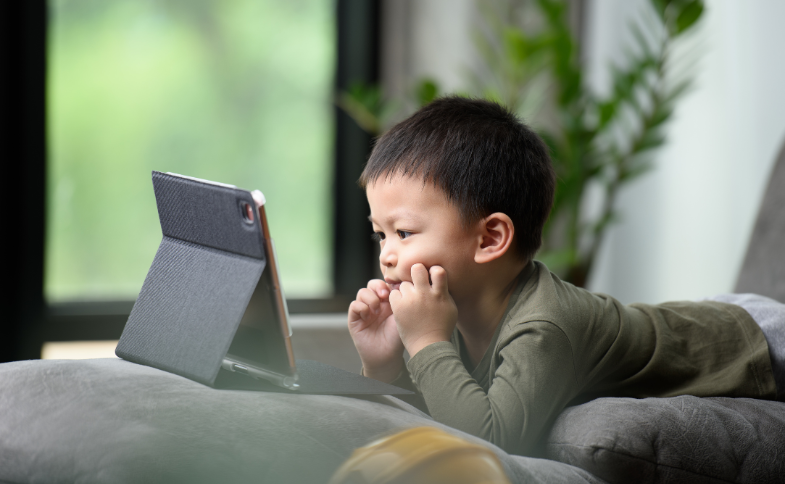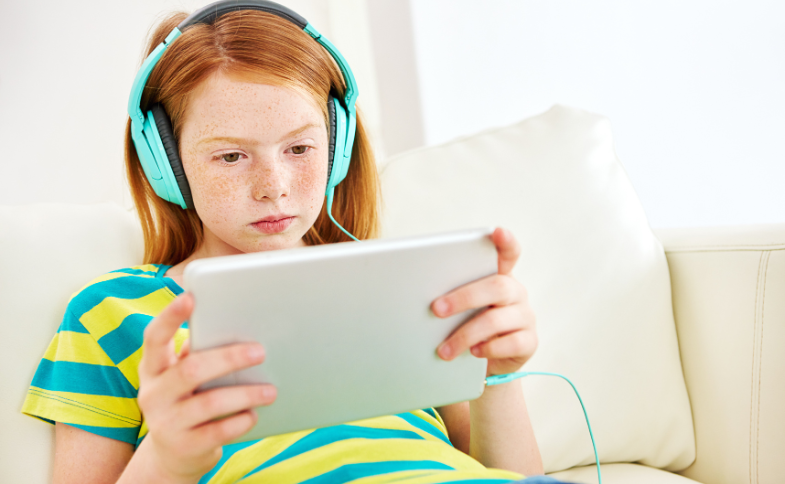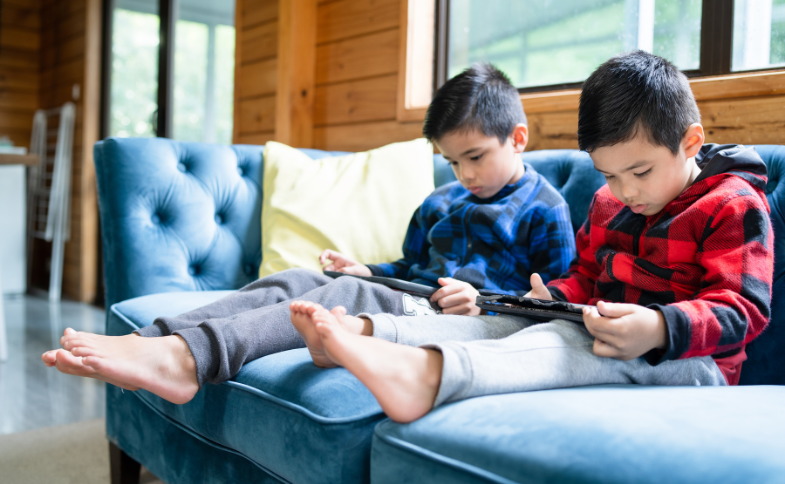The Impact Of Screen Time On Your Toddler’s Development
In this tech-savvy age, screens surround us everywhere. From smartphones to tablets, TVs to laptops, it's hard to escape the glow of screens. But have you ever wondered how all this screen time might be affecting your toddler's development?
A lot of modern parents often rely on phones, tablets, and TV to entertain their kids. So what is the potential impact of excessive screen time on the early development of our toddlers? Let's delve into this.
Before we do, though, be sure to also check out our episode on screen time with Ms.Rachel.

What is Screen Time?
Screen time refers to the amount of time a person spends looking at a screen, be it a TV, computer, tablet, or smartphone.
For toddlers, screen time is not all bad. Some apps are designed to be educational, helping your toddler learn numbers, letters, and even social skills. Moderation is key. You just have to use these apps wisely and engage with your child while using them.
Why Should You Limit Screen Time?
Little brains grow super fast, and everything they see, hear, and do plays a big role in how they learn. Unfortunately, staring at screens doesn't really help them with important skills like talking, playing creatively, or solving problems.
Excessive screen time can lead to problems. Toddlers need a variety of activities to develop their brains and bodies. Sitting in front of a screen for long periods can hinder their physical and social development. It’s all about giving their growing minds and bodies the right kind of exercise they need.
Experts recommend keeping screen time to no more than 1 hour per day for 2-5-year-olds. This includes watching TV, playing on tablets or phones, and using computers.
Impact on Brain Development
Toddlers' brains are like sponges, absorbing everything around them. We talk more about how this works in our guides on how to stimulate your baby’s brain development and how to track your baby’s growth and development.
Real-world experiences help their brains develop important connections. Too much screen time might limit these crucial real-world interactions.
Here is how too much screen time impacts your little one’s brain development:
- Attention – Quick moving, brightly colored apps and shows can weaken a young child's ability to focus. This can lead to issues learning later on.
- Sleep – The blue light emitted from screens confuses the brain and makes it harder for toddlers to fall and stay asleep. Lack of rest affects growth.
- Language Development: Toddlers learn language through interactions with people, not screens. Excessive screen time can replace valuable face-to-face communication, affecting language skills.
- Vocabulary: Talking with caregivers and hearing words helps toddlers build their vocabulary. Little interaction while using devices delays speech too.

Physical Development
Toddlers need to move and explore to develop their motor skills. Excessive screen time can replace active play, potentially hindering the development of fine and gross motor skills.
Activities like climbing, running, and building with blocks are how little bodies develop coordination. Spending too much time sitting in front of a screen can hurt their balance and muscles. Getting kids to move as they play is the best way to exercise for their growing bodies.
Social and Emotional Development
Toddlers learn about emotions by watching the faces of those around them, for example during playgroup activities. Too much screen time means less time observing real facial expressions and emotions, potentially impacting social and emotional development.
Setting Healthy Screen Time Limits
The 2×2 Rule
The American Academy of Pediatrics suggests a simple guideline: no more than 2 hours of recreational screen time per day and no screens in the hour before bedtime for children aged 2 to 5.
Parental Involvement
Additionally, you should not let your little one have too much screen time without being involved. Engage with your toddler during their screen time. Talk about what you're watching, ask questions, and make it a shared experience.

Tips For Reducing Screen Time
Here are some simple tips to keep your toddler entertained without relying too much on tablets and TV:
- Get outside for some park time or create an indoor obstacle course
- Break out the crayons, blocks, puzzles, and picture books
- Cook or bake something tasty together
- Sing songs, play simple instruments, dance
- Encourage imagination and independent play
These alternative screentime activities not only offer a break from screens but also provide opportunities for learning, creativity, and bonding. Let’s talk about them some more in the next section:
Toddler-Friendly DIY Activities to Help Reduce Screen Time
- Sensory Bins: Craft easy DIY sensory bins using items from your kitchen. Explore textures, colors, and shapes with rice, pasta, textured fabric, or other household items. Let your toddler's senses run wild without the need for screens.
- Nature-Inspired Crafts: Venture outdoors to collect leaves, twigs, and rocks. Use these natural treasures for simple crafts that stimulate creativity and reinforce a connection with the environment.
- DIY Playdough Fun: Mix up a batch of homemade playdough for endless sculpting possibilities. Add colors, scents, and textures for an engaging and screen-free tactile experience.
- Cardboard Box Creations: Unleash creativity with old cardboard boxes. Transform them into forts, cars, or spaceships. Decorating and playing with cardboard boxes encourages imaginative play.
- Water Play Extravaganza: Turn ordinary water play into a sensory adventure. Add cups, funnels, and toys to a basin or kiddie pool. This simple activity provides endless entertainment without a screen.
- Dance Party Delight: Clear some space and let the music play. Dancing is not only a joyful activity but also a fantastic way for your toddler to express themselves physically and creatively.
- Homemade Musical Instruments: Craft simple instruments from household items. Shakers made from rice-filled bottles or drums fashioned from empty containers offer a hands-on introduction to music.
- Storytime Puppet Theater: Create a puppet theater using household items like a blanket and cushions. Encourage storytelling and imaginative play as your toddler brings their favorite tales to life.
Final Thoughts
In today’s digital age, screens are a part of life. However, as parents, it's crucial to balance screen time with real-world experiences. Your toddler's development relies on a mix of activities – from running around the backyard to reading a physical book.
Therefore, try to aim for a healthy balance if you want to ensure your toddler grows up with a well-rounded and robust development. Remember, those first years fly by quickly. Limiting screen time helps ensure your little one grows into their best self! Good luck!